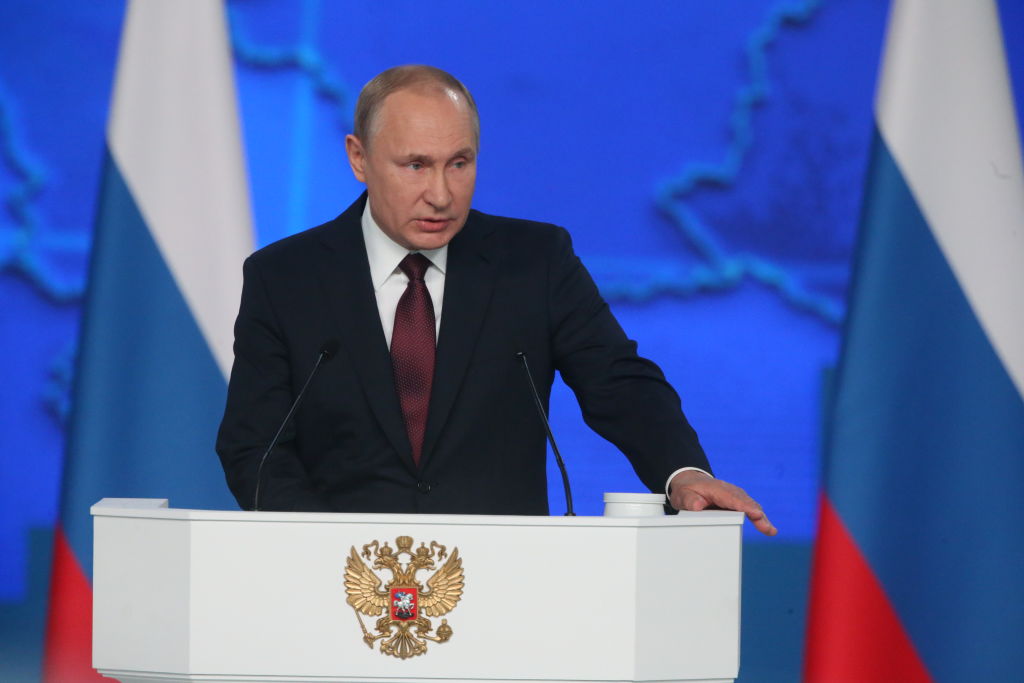
What Happened This Week:
Last week, Russia’s parliament approved a law that might allow the country to cordon off its internet from the rest of the world, creating an unprecedented “sovereign” internet. Russian President Vladimir Putin is expected to sign it in short order.
Why It Matters:
It matters because if Russia is able to pull this off (a very big if), it will be the most tangible step yet towards fracturing the web. It could also be a harbinger of things to come in other countries.
This law will regulate how internet traffic moves through critical infrastructure for the internet. By November internet service providers will have to adopt new routing and filtering technology and grant regulators the authority to directly monitor and censor content it deems objectionable. But the real groundbreaker is the intent to create a national domain name system (DNS) by 2021, probably as a back-up to the existing global system that translates domain names into numerical addresses. If Russia builds a workable version and switches it on, traffic would not enter or leave Russia’s borders. In effect, it means turning on a standalone Russian internet, disconnected from the rest of the world.
No country has ever tried to build its own internet architecture before. Even China, the world leader when it comes to internet censorship, has built its “Great Firewall” on the existing global DNS—it filters traffic, but is still part of the same worldwide addressing system. The authors of Russia’s law say it will make the internet in Russia more resilient against outside attacks, but its main effect is to vastly expand the government’s control of the internet and its underlying infrastructure. The national DNS probably isn’t meant for daily use but instead for government-defined emergencies. Of course, an emergency for the Kremlin could be widespread protests against the government like the country experienced in 2011-2012, which prompted the first online censorship laws.
What Happens Next:
That’s the trillion-dollar question. Putin will sign the legislation into law, but it’s far from clear that creating a standalone internet is technologically possible or financially wise. Russia attempted to disconnect from the global internet in 2015 in a test case, but foreign data still managed to trickle in. And successfully pulling this off will require billions of rubles in investments by Moscow or the telecom industry, not counting any losses to the economy if testing the system causes service outages. Regardless, plenty of emerging markets will be watching the Russian test case closely. If Moscow pulls this off, other governments could be tempted to follow suit.
The Key Number That Explains It:
Russia’s internet penetration rate is 78% and steadily growing, according to Pew Research Center. This makes it among the largest online populations in the world, in part because of state support to expand internet access over the past decades. With more Russians online, and with more conflict in cyber-space, the Russian government feels greater need to assert what it calls “digital sovereignty”—loosely defined, the right to control data and online content within its borders.
The Key Quote That Sums It All Up:
“What are rights? They’re the biggest lack of freedom. I can tell you that the more rights you have, the less free we are… A ban is when the person is free because it says ‘this is impossible, but with everything else — [you can] do what you want.’” Russian Senator Elena Mizulina, in defense of the country’s new internet laws.
The One Thing to Read About It:
Not all countries are in a position to even attempt to build their own internet—via high-tech filtering, data localization, or tinkering with network architecture— and opt for simply shutting down sites and social media platforms in times of crisis. We saw this just this week in Sri Lanka. Read this excellent piece by GZERO Media’s Alex Kliment on the pros and cons of shutting down the internet in times of emergency. Folks in the Kremlin should read it, too.
The One Major Misconception About It:
That Russians should brace for an internet that will soon be as restrictive as China’s. The reality is that the Chinese people have not really known any internet beyond the heavily censored one that has been in place since the 1990s. Russians, on the other hand, had a virtually uncensored internet up until 2012 or so. That makes the Kremlin wary of overplaying its hand… especially as internet privacy/freedom has been one of the few things that Russians have shown a willingness to protest over.
The One Thing to Say About It at a Party:
The EU treats data privacy as a fundamental human right: GDPR allows users to see what data from them has been collected and to manage that data, and Europeans led the way on legislating the “right to be forgotten.” The US treats data privacy as the responsibility of tech companies, and only moves to act once a significant breach has happened. Russia and China on the other hand see data privacy and state surveillance as inherently intertwined—the state is the basic actor online, and its users are subjects. As the internet continues to develop and become integrated into more and more aspects of our daily lives, these fundamentally differing views will clash more frequently. Brace yourselves.
More Must-Reads from TIME
- Cybersecurity Experts Are Sounding the Alarm on DOGE
- Meet the 2025 Women of the Year
- The Harsh Truth About Disability Inclusion
- Why Do More Young Adults Have Cancer?
- Colman Domingo Leads With Radical Love
- How to Get Better at Doing Things Alone
- Michelle Zauner Stares Down the Darkness
Contact us at letters@time.com